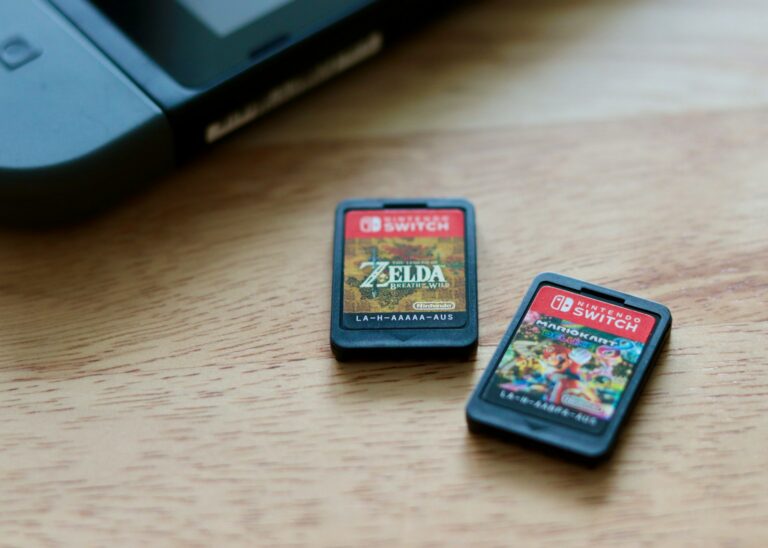If you’ve ever delved into the world of video games, chances are you’ve come across the acronym RPG, which stands for Role-Playing Game. RPGs are a diverse and captivating genre that has been captivating gamers for decades. And to prove this to you, I have created a comprehensive guide that can serve as an introduction to RPGs to you! I’ll take you on a journey through the history of RPGs, the different types of RPGs, their gameplay mechanics, popular RPG franchises, and offer some valuable tips for beginners. So, let’s dive into the enchanting realm of RPGs.
A Brief History of RPGs
The roots of RPGs can be traced back to the tabletop world. In the early 1970s, tabletop games like Dungeons & Dragons (D&D) pioneered the concept of role-playing. Players created their characters, embarked on epic adventures, and rolled dice to determine outcomes. It didn’t take long for this concept to make its way into the realm of video games.

The 1970s and 1980s saw the emergence of text-based RPGs like “Zork” and “Rogue,” which laid the foundation for the genre. However, it was the release of “Dragon Quest” (known as “Dragon Warrior” in the West) and “Final Fantasy” by Japanese developers in the 1980s that truly popularized RPGs. These games introduced turn-based combat, character development, and captivating storytelling.
As technology advanced, RPGs evolved as well. The 1990s brought us classics like “The Elder Scrolls: Daggerfall,” “Baldur’s Gate,” and “Chrono Trigger,” each offering unique gameplay experiences and intricate narratives. The 2000s witnessed the rise of Western RPGs such as “The Elder Scrolls: Morrowind,” “Mass Effect,” and “The Witcher,” all of which emphasized player choice and open-world exploration.
Today, RPGs continue to thrive, with a diverse range of sub-genres and styles that cater to all tastes. Whether you prefer fantasy, science fiction, or even post-apocalyptic settings, there’s an RPG for you.
Types of RPGs
RPGs come in various flavors, catering to different playstyles and preferences. Here are some of the most common types of RPGs:
- Traditional RPGs: These are the classic, turn-based RPGs that stay true to the genre’s tabletop roots. They often feature epic stories, character development, and strategic combat. Games like “Final Fantasy” and “Dragon Age” fall into this category.
- Action RPGs: Action RPGs combine fast-paced real-time combat with RPG elements like character progression and story-driven narratives. Notable examples include “The Legend of Zelda” series and the “Dark Souls” franchise.
- Open-World RPGs: These games offer vast, open game worlds for players to explore at their own pace. “The Elder Scrolls” series and “The Witcher 3: Wild Hunt” are prime examples. They allow players to immerse themselves in rich, immersive environments.
- Tactical RPGs: Tactical RPGs focus on strategic, grid-based combat. Games like “Fire Emblem” and “XCOM” require careful planning and positioning, making every move crucial.
- Action-Adventure RPGs: These hybrids combine action and adventure elements with RPG mechanics. Titles like “The Legend of Zelda: Breath of the Wild” offer exploration, puzzle-solving, and character progression in one package.
- MMORPGs (Massively Multiplayer Online RPGs): These RPGs allow thousands of players to interact within a shared online world. “World of Warcraft” and “Final Fantasy XIV” are prime examples, providing epic adventures in a persistent online universe.
Gameplay Mechanics in RPGs
RPGs are known for their deep gameplay mechanics that immerse players in the role of their characters. Here are some key elements you’ll often encounter:

- Character Creation: Many RPGs start with character creation, where you craft your hero, choosing their appearance, skills, and background. This process allows for a personal connection with your in-game avatar.
- Character Progression: As you play, your character gains experience points (XP) and levels up. This unlocks new abilities, improves attributes, and enhances your character’s overall power.
- Inventory Management: RPGs often feature extensive inventories filled with weapons, armor, items, and loot. Managing your inventory and choosing the right gear is essential for success.
- Quests and Storylines: RPGs are known for their compelling narratives and side quests. Following the main storyline and exploring side quests can lead to rich storytelling and unique rewards.
- Choices and Consequences: Many RPGs emphasize player choices, which can have a significant impact on the game’s world and story. Decisions you make may alter the course of the game and influence its ending.
- Combat Systems: Combat in RPGs can vary widely, from turn-based battles with menus and stats to real-time action sequences. Understanding your character’s abilities and weaknesses is crucial for success.
Popular RPG Franchises
RPG enthusiasts are spoiled for choice when it comes to iconic franchises. Here are a few that have left a lasting impact on the genre:
- Final Fantasy: With its breathtaking worlds, memorable characters, and deep stories, the “Final Fantasy” series is a cornerstone of RPG history.
- The Elder Scrolls: Known for its sprawling open worlds and intricate lore, “The Elder Scrolls” series invites players to explore Tamriel in epic adventures.
- The Witcher: Based on the book series by Andrzej Sapkowski, “The Witcher” games follow Geralt of Rivia on his quest to hunt monsters and navigate a morally gray world.
- Dragon Age: Developed by BioWare, the “Dragon Age” series offers players a rich fantasy world filled with political intrigue, complex characters, and impactful choices.
- Persona: This series blends traditional RPG gameplay with social simulation elements, set against a backdrop of high school life and supernatural mysteries.
- Mass Effect: Known for its gripping sci-fi narrative and memorable characters, the “Mass Effect” series lets players explore the galaxy and shape the destiny of humanity.
Tips for Beginners
If you’re new to the world of RPGs, here are some tips to help you get started:

- Start with a Beginner-Friendly RPG: Choose an RPG known for its accessibility and ease of play, such as “The Legend of Zelda” or “Pokemon.”
- Read the Tutorials: Don’t skip the tutorials. They provide essential information on gameplay mechanics, controls, and character progression.
- Experiment with Character Builds: RPGs often allow you to customize your character’s abilities and playstyle. Experiment with different builds to find what suits you best.
- Take Your Time: RPGs can be expansive and overwhelming. Don’t rush through the game. Take your time to explore, complete quests, and immerse yourself in the world.
- Save Regularly: Save your game frequently, especially before making major decisions. This way, you can revisit choices if things don’t go as planned.
- Embrace Failure: It’s okay to fail in RPGs. Sometimes, failure can lead to unexpected outcomes and new story paths.
- Join the RPG Community: Engage with the RPG community online or in local gaming groups. They can provide valuable tips, strategies, and recommendations.
- Enjoy the Story: RPGs often feature rich, immersive narratives. Take the time to savor the story and get to know the characters.
Conclusion
Role-playing games have come a long way from their tabletop origins, offering an unparalleled level of immersion and storytelling in the world of video games. Whether you’re a fan of fantasy epics, science fiction adventures, or something in between, there’s an RPG out there that will transport you to a world of wonder and adventure. With the tips provided here, you’re well-equipped to embark on your own RPG journey, so grab your controller or keyboard, create your hero, and step into the captivating realm of RPGs.





